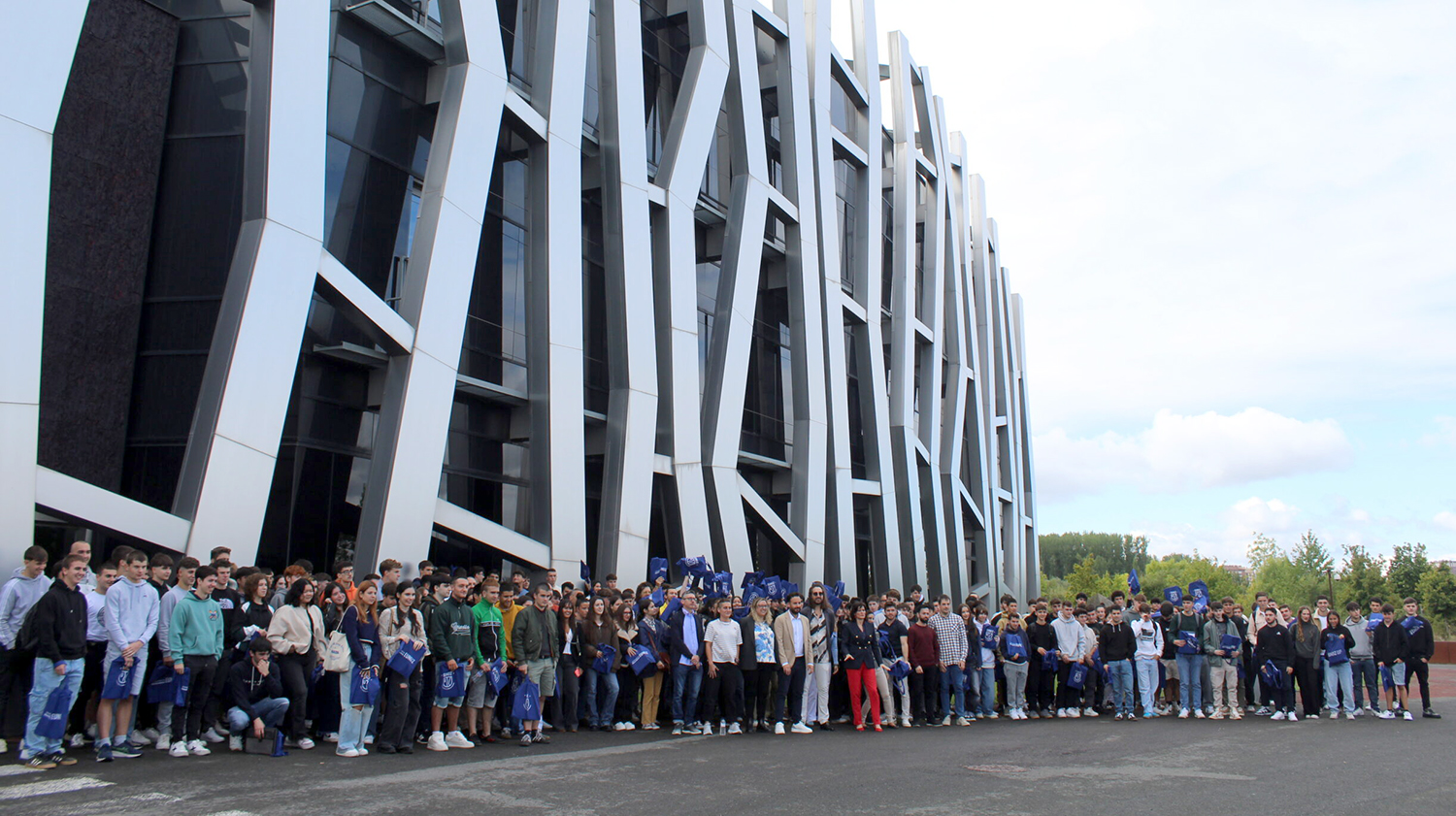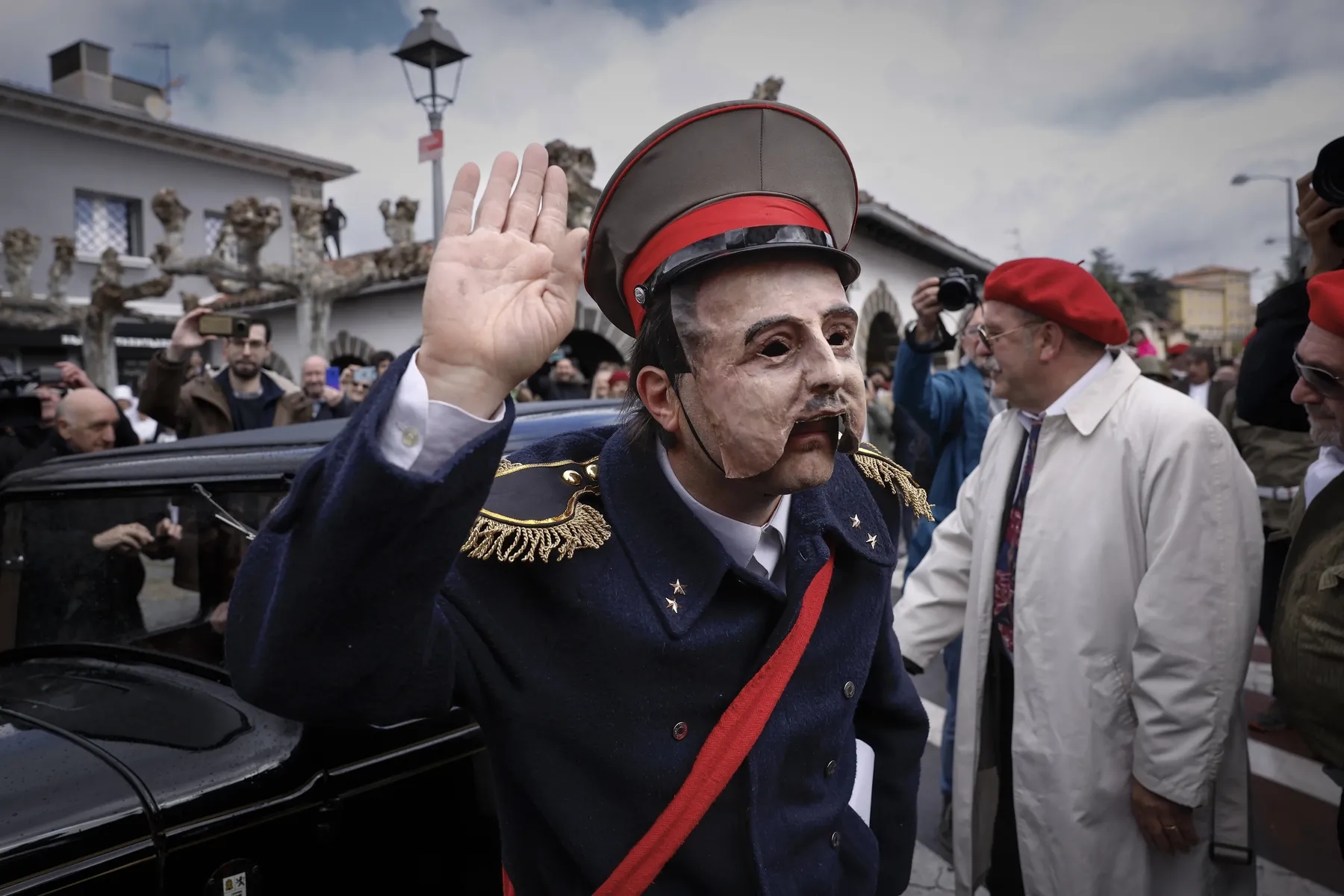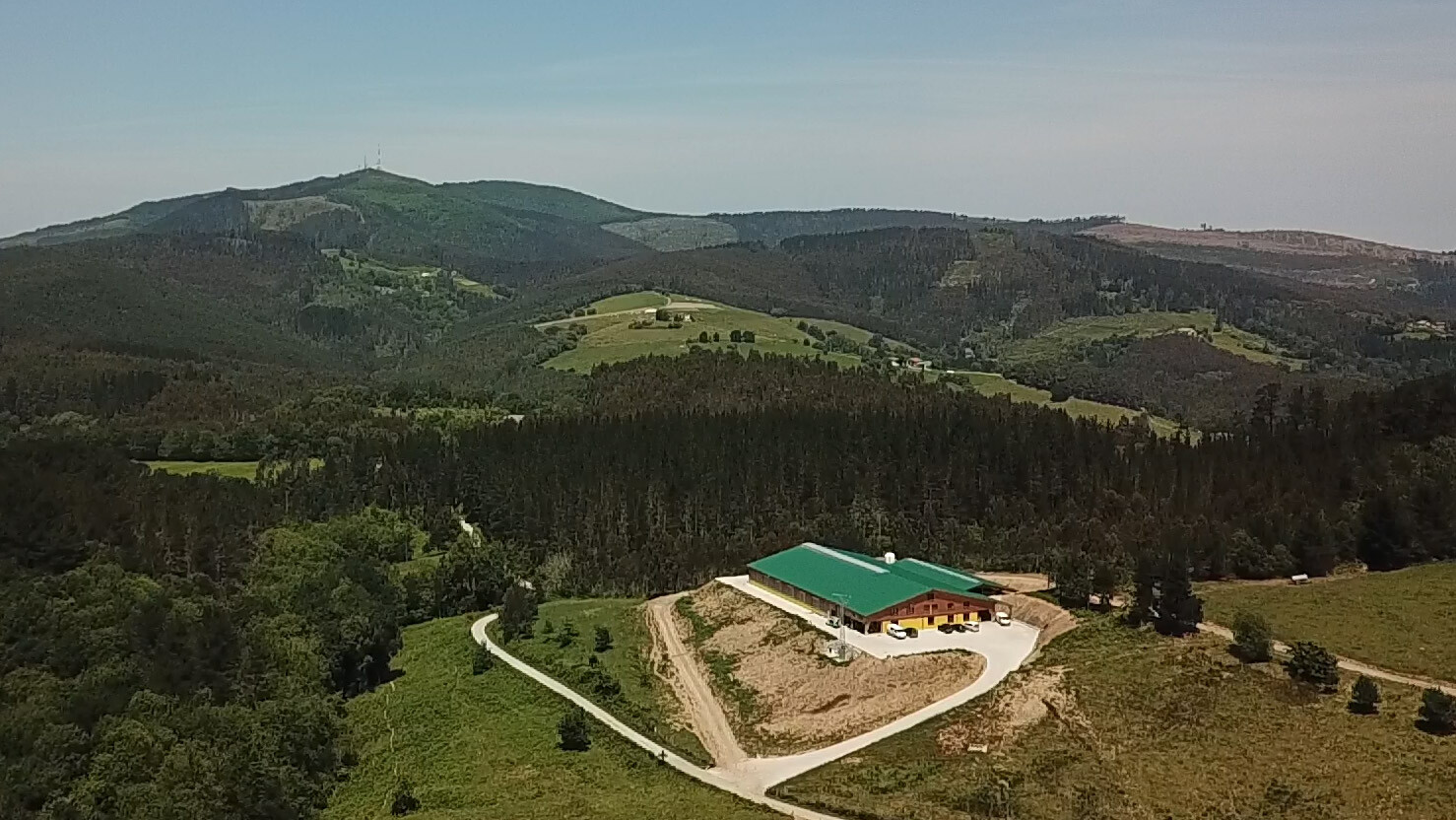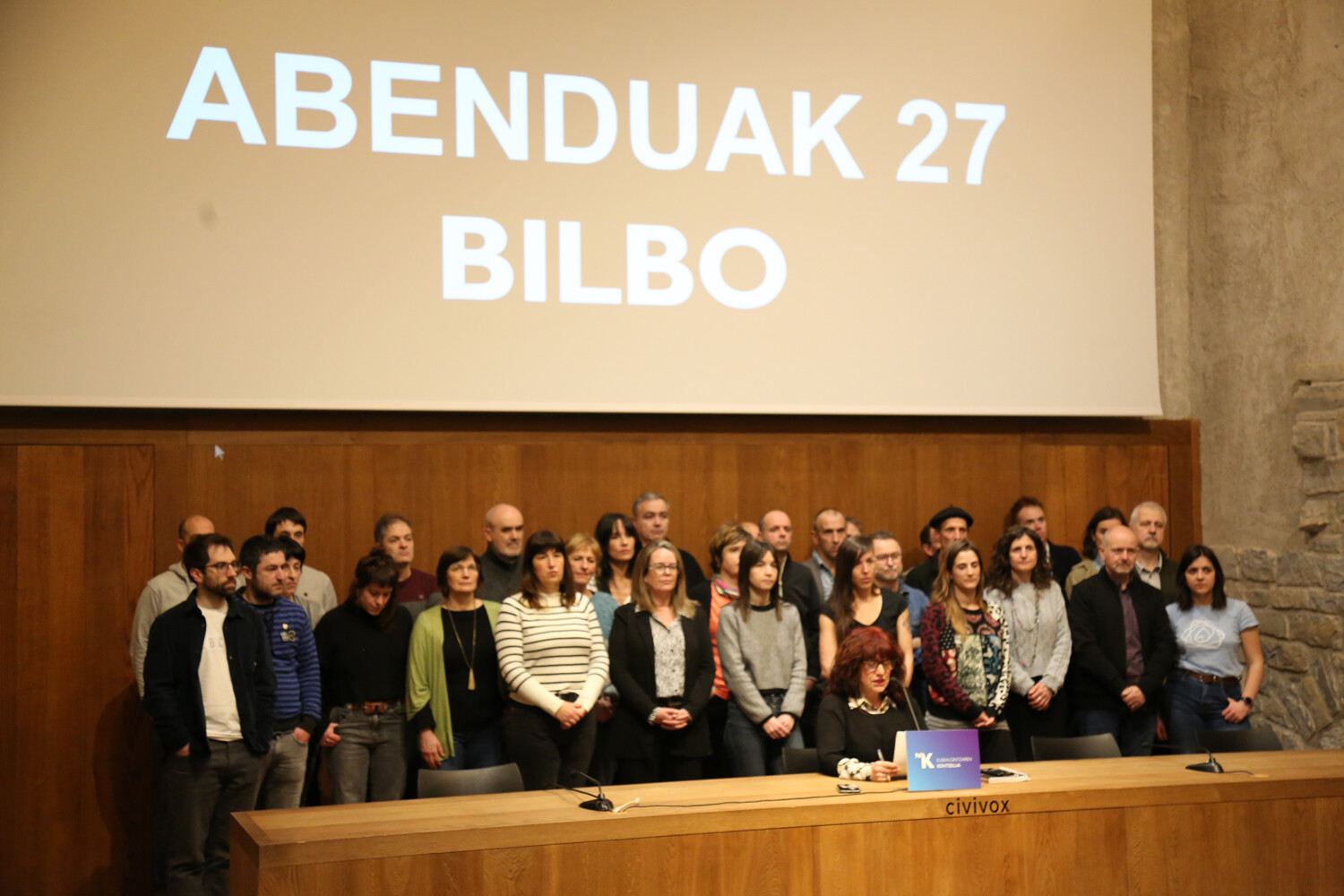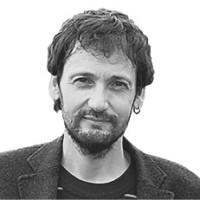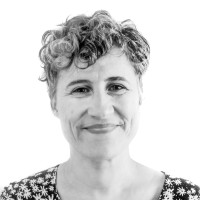"If it was Basque in the middle, you cared about the rest."
- He worked as an ant for many years in his office in the Provincial Council of Gipuzkoa. Take the magnifying glass, however, and the vastness of smallness is revealed by the living outside and inside of Maria Pilar Lasarte.
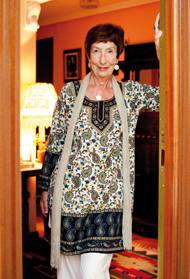
[He told us before we started asking, humble]
I've been interviewed before, and I say to myself: “What’s the point of interviewing me?” It starts from here and there: “And why not?” Then I say yes, but I don’t like it very much... I’m not a “character”. On the other hand, I think that all people also have the ego there, and that’s what these conversations and issues are for, to walk the ego a little. But there's something deeper...
For example, religion?
Without a doubt! The thing is, what we've been told about religion is something very light. Religions are forms: that is Buddhism, Islam, Christianity... Only forms. There is something deeper underneath these forms. This is the interreligious dialogue to bring to light the deep spirituality that underlies these pure forms.
What were the Aramis (Missionaries of Our Lady of Arantzazu)?
What shall I tell you? The Aramis spread the same image as religion in the 1960s. There was no innovation. Well, they wanted to unify Christianity and the Basque Country, and in this regard, the approach was quite innovative. But from a religious point of view it had no extraordinary depth. What shocked me deeply was the Catalan Antonio Blay. It was in 1978. It wasn’t until I listened to Blay that I became aware of the impact that the ideas they had introduced us from childhood had on our unconscious, our inner self, the work we had to do in order to be free, looking at ourselves. Blay deepened and combined the psychological vision and spirituality of the person. I followed the courses he taught from his beginnings in 1978 until his death in 85, both during his summer holidays in Barcelona and when he came to San Sebastian. The Arami group was there, yes, we met every month, but I didn’t see neither the group nor Christianity as the group. That’s what I said at those meetings. I have friends in the group, and that's what mattered. One came to life in any way he could, and we met every month to delve deeper into the issues. I said that at the end of the first course I would leave the monthly meetings, if I left the group, but not the friends I have there.
Born in 1937 in the junta.
But for months we were at the Lasartenea Bar. My mother said I was born on the board, but nothing more. It was a year of war in 1937. There was a shortage and rationing, but at home the bar and we weren't hungry. However, I was small to realize anything... my father died when I was six years old. Then Mom got married again. His second father had been in the war, and he had to tell them. My mother, too. He said, for example, that in the barracks of Leitza there was a cape, very special, and on the balcony of our house, somewhere, the Spanish flag was placed, but the wind or the shaking and the flag was not as it should be. And that the corporal said rudely to our mother: “Mary, if necessary, hold the flag with the stone!” In Leitza, of course, there were different people, some very Basque, others very Spanish. I met the pharmacist and the veterinarian at the bar. They were both very Basque. At home we listened to Radio Paris –which was spoken by Fr. Alberto Onaindia Olaso, among others– and the pharmacist and veterinarian made their comments. Patriotic Day was not celebrated in that good war, but the two of them lived it very intimately... I was very attentive to what they said. On the other hand, Carlos Santamaría also wrote in La Voz de España and I was also hearing about them. I was a horny 13-year-old girl who had stopped going to school for helping me in the bar at home and helping my mother raise smaller family members, and I heard a lot of things...
Does being raised in a bar mean anything different?
Of course I do! We lived in a closed Christian environment, the priest commanded. At the bar, I saw young people drinking, some even drunk... It used to be a bride. Those who walked on one side of the brides wore black shoes; those who walked on the other side wore red earth. Then they knew who had been there. Or that the strangers came to the bride and stoned them... living in the tavern where you knew what you didn't know at home. Lots of things, and lots of people.
When you were 18, you started working at the paper mill, near Leitza, in Berrobi.
Oh, yeah, yeah. I rented the bar and I was free. In Leitza, the goal was still to learn something for the day when the paper factory was being built and it was put into operation. We used to go to a pretty big group, every day. Leave at seven in the morning, work ten hours and go back again.We didn't earn enough to accommodate Berrobin. On the bus, we used to pray the rosary from Leitza to Berastegi. The chauffeur, Etxabe, took off his hat and joined us in prayer. From Berastegi to Berrobi, singing and singing! Mexicans, Basques... We had an amazing party!
From the street of Leitza to the factory of Berrobi, would it be a big change, or what?
What a horrible thing! A different way of life. New money began to enter the village. Before, people went to the mountain, to the farm of one and the cattle of the other, there they took life, the chickens here and the eggs there, without misery. The factory was a completely different world. We didn't even know what it was! When the first strike was made, we didn't even know it was a strike. They had meetings, but we didn’t know. We were naive. We got on the bus and went to Hariri. We went to the factory, we couldn't get in and we went to Toulouse. We went up and down there. When we had done enough, we went to the factory, telling them to put a bus for us to go to Leitza. We were in Huelga, but asking for a bus to go home. Our innocence to the point! They ignored us, of course. We took the online bus to Berastegi and from there on foot to Leitza.
You went from innocence to consciousness...
At some point. Seeing how some Catalans like bosses welcomed us as workers. I remember that the factory started working and it went wrong, the paper was broken and broken in the painting department when I was there. The so-called Don Pepe came from the Arrosi factory in Berastegi. He was a Republican, a fine man. The Republic's accounts and I walked and I was very attentive to him. When the paper was broken, people began to blaspheme there, curse here and there, and Don Pepe once said to one of those blasphemers: “Are you ready to go to Mass?” “Yes, of course.” “For this is the temple of God, and this is the temple of work!” And he silenced her. I got everything, everything.
You also studied at the same time.
I wanted to work in the office. I had taken several coursework in the mail when I lived in the bar in Leitza. Later, when I was called to the office in the factory, I also rented a typewriter in San Sebastian. When I took her home, my mother didn’t understand what I was studying in that machine, paying her rent! We were girls, and she didn't need to learn, apparently. Learning belonged to the boys! That's how my mom saw it.
You quit your job at the factory one day and walked off the path of the Basque...
I had a great sense of justice. I saw that the Basques needed justice. On the other hand, we had such a Christian air! It was the time of the encyclical Pacem in Terris and, on one occasion, the Franciscan Eugenio Agirretxe made speeches in Toulouse. Some people, take a taxi to Leitza and Tolosa. The encyclical defended the rights of the people and that is what Agirretxe talked about. On the other hand, in Leitza there were those of the Third Order of San Francisco, and we lived immersed in that environment. The Arami group was already formed. They had a house in the Carboneras. Little by little I followed this path: justice, the Basque Country and a Christian spirit, the three of them gathered among the Aramis, and I joined those who lived in that house, taking a year’s leave at work. I never went back to the factory. Jerseys and sewing brought life out. We were told that it was necessary to work, and I was also in Saint-Jean-de-Luz, in the summer of 1965, working in a hotel. When the course started I was in Elgeta, at school, teaching small children.
You also attended the Joannes Etxeberri Miss School in San Sebastián.
It was called “The Residence of the Ladies”, it was known by that name. The local director got sick, Pakita Arregi. Catalina Irureta and I were told to go there. And we left, because life had to come out, somehow. We visited Matia Street in Antigua, called Villa Blanca. They threw him out... there were people in that residence who were studying to be teachers. I remember Joan Mari Lekona, Joxemiel Barandiaran... giving speeches. I went to Ataun to get Barandiaran, I just got my driver's license! It was snowing, but the man said yes, we were going to San Sebastian... These ladies were doing their formal studies at the teacher's school. In the residence of the ladies they had talks about the Basque culture. There were some well-known young men there today. Ladies, be beautiful young ladies! And the Basques! Anyway, some of those ladies were talking about the Erdogan anyway. We established the rule that the Spanish speaker would have to pay the peseta. And yet, always fighting. They had a conscience, but there were those who did not live in a Basque environment, who spoke Spanish. I remember once how I put a verse on the bulletin board: “It is done in Basque because of the fear of the Passover / This fills our hearts with thorns / Such a lady in front of our eyes would not / It would be better to go to the Congo!” Once upon a time, Joan Mari [Tokona] has come, and there she begins to put that verse in the little octave somehow and sing! I was embarrassed because no one knew who had put the verse in question.
In 1967 you were in the residence of the ladies, and the following year you were working in the Basque Country.
The congress of Arantzazu in '68, and I was told they needed someone. I think Pakita Arregi told me that. I spoke to Pedro Berrondo. On the other hand, the idea of the Basque Government was to open the office in the Provincial Council of Gipuzkoa, where I started working. I started working there and I worked there until 2000. I didn't go to Arantzazu, I knew it was sauce, but I couldn't measure it. I didn't know that. If Basque was involved, you cared about the rest, social security and wages. If Lain came out to live, it didn't matter. It was pure idealism.
You’ve been in the industry for over ten years. You would have seen eleven...
Well, that's right. A dictionary of up to eight years of schooling was made when I had just entered. Published in 1973. Every week we met Carlos Santamaría, Joxemiel Zumalabe, Xalbador Garmendia, Irigoi and the five of us. Of course, they were the wise ones. Carlos Santamaría was worried about the lack of vocabulary in the school. He wanted to do something and that’s where the vocabulary came from. Take into account the vocabularies that have been made since then and nothing was that, but then it was a great thing. I served as the secretary of that group. It was a very interesting time. The seat of the Basque Government was in the Diputación, when there was no Basque environment in the Diputación. Carlos Santamaría and Joxemiel Zumalabe were people of prestige, and I think it was thanks to this that we were in the Diputación. But no Basque atmosphere there. I remember, in the photocopier, in the queue, people waiting too and someone said to me: “You’re not a deputy.” I'll take care of it. “I am working for the Basque Government, an institution created by this Provincial Council in 1918 together with other Provincial Councils.” I defended him without worries, with all the innocence. “What is this saying, though?” Later on I noticed something when we had to move from one side to the other in the Diputación itself. I don't know how many different offices we went through. The way they use kittens from one to the other, that's how they used us. And take the papers and the books, organize them well and always follow them to another office. That was the atmosphere.
He also recovered in a moment...
Alittle bit, he came... I also taught Basque in the same Provincial Council. Another atmosphere prevailed.
beti mirabe leiala;
gure hizkuntzaren biztualdia
munduan goza dezala.
Arrosa bezain dotore,
sentimenduetan noble,
Leitzako andere langileari
txaloak eta ohore.
(Joan Mari Lekuonak Maria Pilar Lasarteri, erretiroa hartu eta honen agur-bazkarian)
Gozamen aparta bezain deskribatzeko zaila dakar, norbaiten hitzak irakurri edo entzun ostean, zera pentsatzeak: “Horixe zen neu aurreko hartan azaltzen saiatu nintzena!”. Idazlea eta itzultzailea da María Reimóndez, eta galegoz aritzen da, hizkuntza... [+]
Ugaritu diren “txiringito pribatuei” muga jartzeko asmoz, unibertsitate berriak sortzeko baldintzak gogortu nahi ditu Espainiako Gobernuak. Euskal Herrian polemika artean jaio zen azken unibertsitate pribatuak adibidez, Gasteizko Euneizek, gaur gaurkoz ez ditu... [+]
In the middle of Franco’s regime, eleven neighborhoods were built or remodeled in the Basque Country to provide housing for workers from abroad. As now, the main support of the precarious who came before was the neighbor. The neighborhood was often built almost from scratch... [+]
Bizitza erdigunean jartzeko abagunea ikusi genuen feministok zein ekologistok Covid-19 pandemia garaian. Ez ginen inozoak, bagenekien boteretsuak eta herritar asko gustura itzuliko zirela betiko normaltasunera. Bereziki, konfinamendu samurra pasa zutenak haien txaletetan edo... [+]
Wikipedian bilatu dut hitza, eta honela ulertu dut irakurritakoa: errealitatea arrazionalizatzeko metodologia da burokrazia, errealitatea ulergarriago egingo duten kontzeptuetara murrizteko bidean. Errealitatea bera ulertzeko eta kontrolatzeko helburua du, beraz.
Munduko... [+]
Egypt ' s urban planning plan for the Gaza Strip has recently been expanded. A drawing shows the streets, buildings and imagery of the future on a reality that still smells of shrapnel and explosives. The urban planning proposal, used as another bomb shot. Individual house... [+]
Segurtasun falta dagoen irudipena handitu dela azaldu du Eustaten azken txostenak. Gurean, Trapagaranen, Segurtasuna orain, delinkuenteen aurka manifestaziora deitu dute herritar batzuek.
Bi izan dira sentsazio hori zabaltzeko arrazoiak. Batetik, udalak Udaltzaingoaren... [+]
Haurtzaroaren amaiera eleberri distopikoa idatzi zuen Arthur Clarkek, 1953. urtean: jolasteari utzi dion gizarte baten deskribapena. Eta ez al da bereziki haurtzaroa jolasteko garaia? Jolasteko, harritzeko, ikusmiratzeko eta galdera biziak egiteko unea. Ulertzeko tartea zabalik... [+]
The writer Juan Bautista Bilbao Batxi worked in a boat and sent the chronicles of his travels to the newspaper Euzkadi. Thanks to this, we have interesting chronicles in Basque from around the world from the beginning of the 20th century. In June 1915, he made his stop in... [+]
The lights of the theater are on. Discreetly, I’m walking on the steps: the school performance is about to begin. The young men run to their seats, full of life and joy. The retreat has the taste of liberation, but this feeling of freedom speaks Spanish or French. This... [+]












